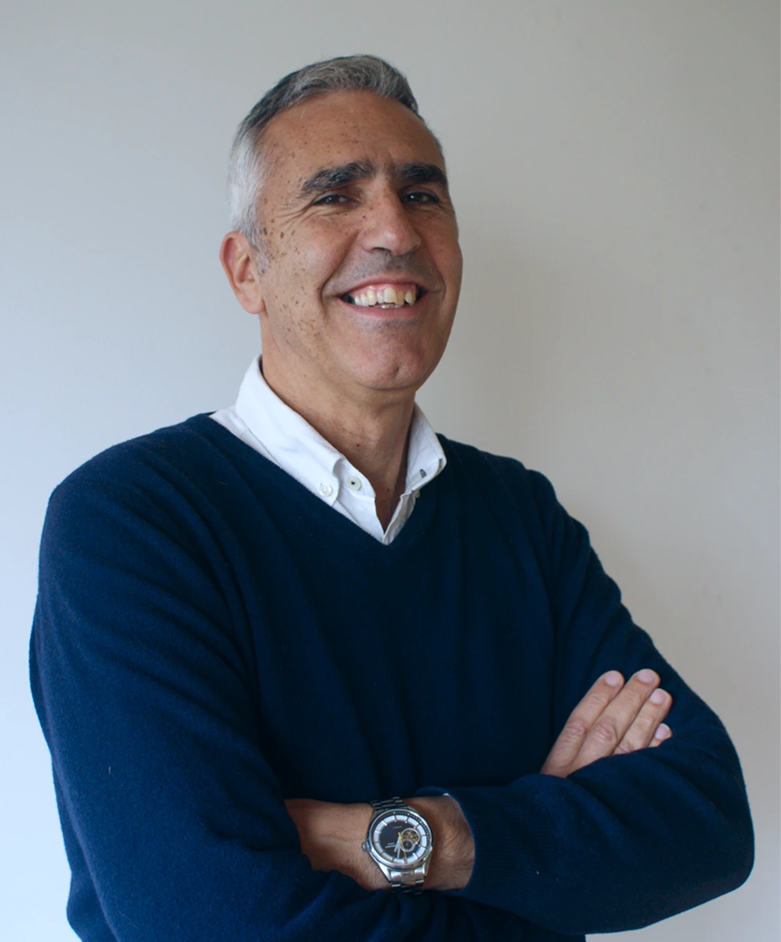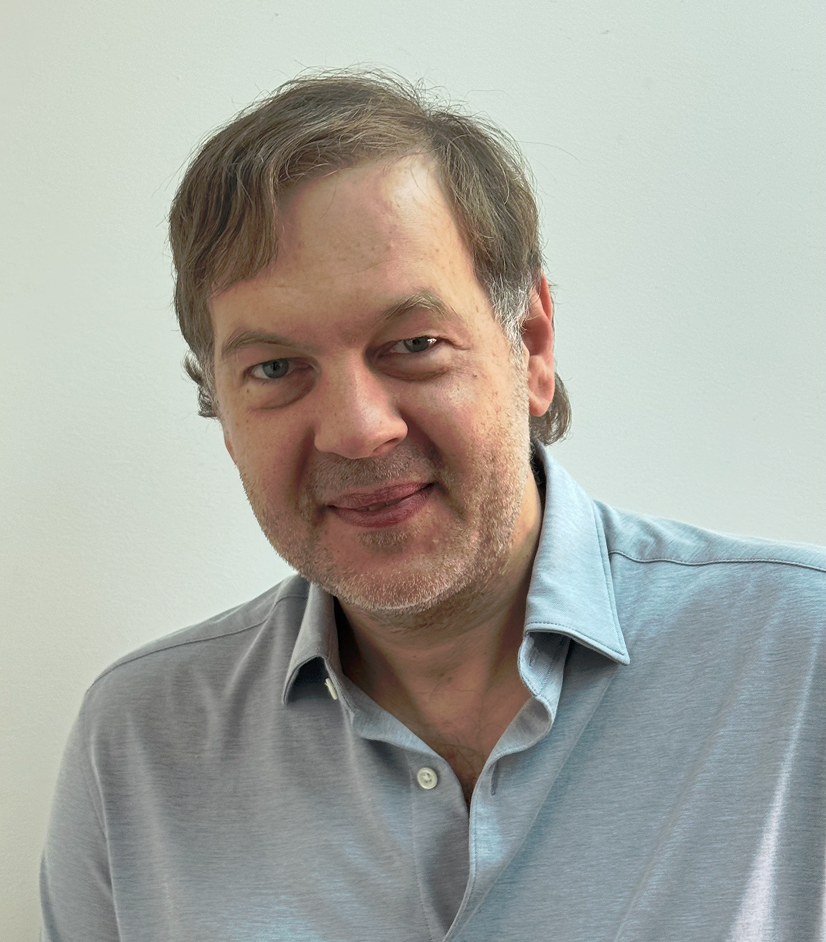

Francisco is co-founder and commercial director of Domótica SGTA and has been dedicated to transforming buildings into intelligent, efficient and comfortable spaces for over twenty years. From Lisbon Airport to Ombria Resort, he led challenging projects that marked the sector. In this interview, he talks about the importance of innovation, the challenges of sustainability, the company's internal culture, and also about the passion that keeps him motivated on a daily basis.
1. How was Domótica SGTA born and what was the motivation for creating the company?
Francis: SGTA Home Automation was born from our passion for technology and for the technical control of buildings. My partners and I started working together on challenging projects right from the start and we always sought to create innovative and large scale solutions, focusing on quality, energy efficiency and customer satisfaction.
Our main motivation was the desire to develop systems that truly make a difference, not only in terms of technology, but also in the comfort and operation of buildings. We wanted to develop systems that were faithful to the customer's needs and adaptable to different contexts.
2. What were the first projects you developed? And which do you consider to be the most striking in the history of SGTA Home Automation?
Francis: One of the first major projects was Gare do Oriente, which we developed from scratch. With a system that was installed in 1998 and continues to work today, with our technical assistance, which shows the quality of our equipment and service.
Another totally different project was the one at Lisbon Airport, where electrical panels and air conditioning equipment were remodeled to allow the installation of a centralized technical management system, all of which happened in full operation, which was something very challenging.
More recently, I highlight the Ombria Resort, a hotel project in the Algarve, with low-enthalpy geothermal use, totally innovative for us, which represented a technical and creative challenge.
All of these projects are remarkable in the history of SGTA Home Automation, above all because of their differences.
3. How do you characterize the role of innovation within SGTA Home Automation?
Francis: Innovation is in our DNA. We are investing in Artificial Intelligence and Machine Learning so that buildings can learn and adapt to the needs of the occupants. We use platforms that allow us to automatically adjust parameters such as temperature or operating hours, but we are developing our own solutions internally so as not to depend on third parties.
Our vision is always to combine energy efficiency, comfort and ease of operation, creating intelligent buildings that adapt to each situation.
4. Can you give us concrete examples of how Artificial Intelligence and Machine Learning are being applied?
Francis: Of course, Artificial Intelligence and Machine Learning can be applied, for example, to systems that control the temperature of a meeting room, where it is possible to calculate the ideal temperature based on occupancy, season and outside temperature. Also, calculating the best start-up time for a given piece of equipment is a task where Machine Learning is increasingly being applied.
In some cases, our clients hire external services to define these and other operating parameters and we integrate these tools into our systems, however, we have a team working to ensure that this intelligence is incorporated directly into our systems, without depending on external platforms. It is a growing area with a lot of potential.
5. How do you see the technological evolution and the integration of Artificial Intelligence in the buildings of the future?
Francis: I consider that the speed of technological change has increased exponentially. For example, if we compare, it took seven years for the internet to reach 100 million users, and the latest version of ChatGPT managed to reach that number of users in just two months.
This acceleration of change is also seen in the technology applied to buildings, which means that systems will be increasingly intelligent and distributed, with thermostats, sensors and terminal equipment learning and adjusting autonomously. It is intended that each occupant of a building has their own personalized space with the comfort parameters that best suit the activities to be carried out, whether in an office, hotel or hospital.
6. How does Domotica SGTA guarantee customer satisfaction in such complex and demanding projects?
Francis: Customer satisfaction is a central priority and is not limited to our direct customers, whether they are homeowners, construction companies, or electrical or HVAC installers. We want the occupants of the buildings we control to also be comfortable and satisfied with their comfort conditions.
Another important factor is the involvement of the company's management, meaning that we are present at every stage of the project, from conception to execution. What I consider to convey trust, credibility and ensures that problems are resolved quickly, even in the most challenging situations.
7. How are they able to maintain quality and demand in every project?
Francis: The secret lies in our technical team, which is highly qualified, and in the involvement of the company's management in all projects.
Even when difficulties or unforeseen events arise, we guarantee that there is direct follow-up to resolve problems on time and according to customer expectations. And we consider that this proximity creates credibility and trust.
8. What are currently the main challenges of SGTA Home Automation?
Francis: Today, we have two major challenges.
The first is to structure the company's management so that it works autonomously, without the constant presence of partners. We grew to a team of more than 30 people and we need to create management layers that maintain the quality and enthusiasm that has always characterized the company.
And the second, which in addition to being a challenge has also become a strategic priority, is the global challenge of sustainability. We want to contribute with our activity so that the buildings in which we are involved achieve carbon neutrality.
9. Can you tell us about the SGTA Home Automation team and how you describe your internal culture?
Francis: We have two pillars that are very important, technical added value and the spirit of mutual help!
Employee training is essential, because what we do is not taught in universities, programming languages, control algorithms and intelligent building management are specific to our area. And on average, it takes a period of two years before a technician is fully autonomous.
But the spirit of camaraderie and collaboration is equally important, and is consistently referred to by all employees as one of the strengths of our company. Throughout the year, we try to promote moments of conviviality, such as the Christmas dinner/Kings or activities billboard, which reinforce genuine relationships and create an environment of trust and sharing.
10. How do they deal with the training of new employees?
Francis: We don't have an internal gym, but we offer continuous training, relying on our technological partners.
In other words, each employee undergoes an extended learning period to master the systems, programming languages, and control algorithms, specific to the company.
Despite being a challenge, this training guarantees the technical quality and autonomy of the professionals who make up our team.
11. What do you consider to be the factors that most contribute to the trust of your customers?
Francis: I consider that factors such as those mentioned before, such as technical quality, management involvement, compliance with deadlines, and the ability to resolve problems quickly, are the main factors for establishing a relationship of trust with our clients.
12. What advice would you give to the 30-year-old Francisco, at the beginning of the SGTA Home Automation System?
Francis: I would say to fall in love with what you do, because that passion is essential to go through moments of tension and difficulty. But I would also advise you to focus more on management and not just on the technical area. The balance between technical vision and the ability to manage teams and processes is crucial for long-term success.
13. Can you share some of the most difficult decisions of your career?
Francis: One of the most difficult decisions was to accept the challenge from Hospital Central do Alentejo.
We had to decide between taking over all the electrical installation associated with the technical management system, something we normally don't do, or not accepting the project. It was a decision shared by the company's management, with pros and cons, and required a lot of consideration about the impact on other clients and projects.
Although the project is still ongoing and presents many challenges ahead, we are confident that we made the right choice.
14. How do you imagine an intelligent building in 2050?
Francis: It's hard to predict, because the speed of technological change increases every decade.
But I believe that the focus will be increasingly on the user, with buildings adapted to individual comfort, energy efficiency and operation needs, ensuring that each user has a personalized experience, with autonomous and intelligent systems.
15. What message would you like to leave to the readers of this interview?
Francis: The challenge of climate change is decisive for the sector. Making buildings carbon neutral is a global priority and an attractive challenge for all those who lead companies in this sector.
At Domótica SGTA, we want to be active agents in this transformation, collaborating with homeowners, property developers, construction and installation companies, and asset managers to create a sustainable and efficient future.
16. Finally, what still motivates you today and what are the future plans for SGTA Home Automation?
Francis: The passion for what we do keeps me motivated. Innovative projects and exciting challenges continue to emerge that make my life anything less monotonous.
The next few years are crucial. We want to create a management structure distinct from the four partners, maintaining the quality, enthusiasm and commitment that have always characterized us.
My vision is that this change in management will allow Domótica SGTA to continue for many decades, maintaining technological innovation, customer focus and sustainability as strategic pillars.
https://www.domotica.pt/







